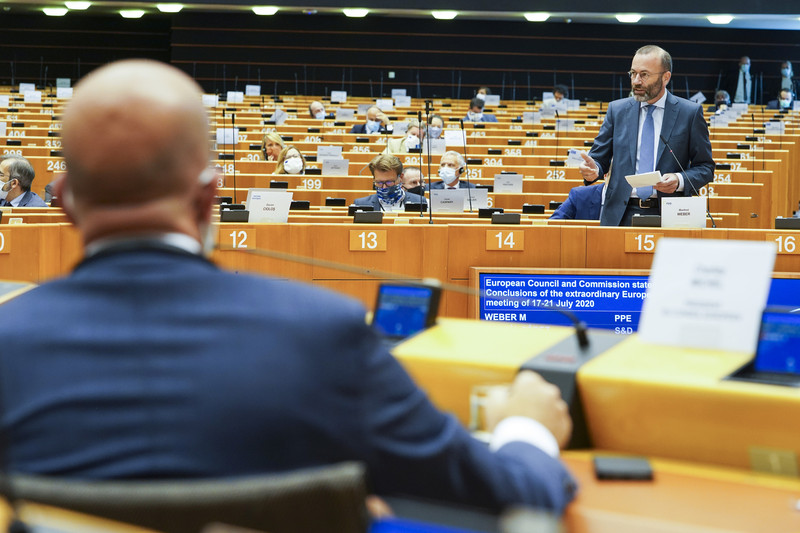How COVID-19 is changing the European Union

The Covid-19 pandemic took the European Union on a rollercoaster ride. When a first mini wave of infections hit the EU on 24 January, the Union entered a period of self-delusion. During the last weekend of February, when infections rose dramatically in Italy, self-delusion gave way to selfish improvisation.
With European solidarity in pieces and markets reacting nervously, leaders finally stepped in on 10 March. From mid-May onwards, a fourth phase kicked in: the EU started to rebuild itself for the future. On 18 May, German chancellor Angela Merkel and French president Emmanuel Macron paved the way for the European Commission’s Next Generation EU proposal and ultimately for the European Council agreement of 23 July. These were the six months that changed the European Union. The Covid-19 pandemic was a stress test for the EU and its member states.
Firstly, Covid-19 exposed the limits of the EU’s capacity, both in its short-term emergency response and its longer-term foresight. Each health crisis over the past few years has led to better response tools. This crisis is no exception. But given the huge cross-border impact on the Schengen area, more should be done to prevent a repetition of the chaotic border management experience that we saw during this crisis. Strengthening the EU’s foresight capacity is equally pressing. The EU now has a commission vice-president in charge of foresight, the External Action Service has a policy planning unit, and national foreign ministries increasingly invest in foresight. It is time to bring all these pieces together and make sure they are not sidelined when it comes to decision-making.
Secondly, Covid-19 revealed once again how dependent the EU is on others, for everything from Chinese facemasks and Indian pharmaceutical products to US-based videoconferencing tools or contact tracing software. It is the time to give ‘European sovereignty’ a boost. This, however, should be done smartly. One example: screening foreign investments. Smart means ‘coordinated’, which, given the 14 different screening mechanisms in place, is not currently the case. Smart also means: ‘protection without protectionism’. After all, we also need the millions of jobs that these foreign investments create – 16 million in 2017 alone.
Thirdly, the EU should not shy away from promoting its own model. When walking a tightrope between health and wealth, European leaders, in general, demonstrated the importance of saving lives and protecting fundamental rights. The virus should not infect Europe’s democracies. A strong attachment to privacy rights, for instance, sets Europe apart from other, non-European countries. During the crisis, the EU also demonstrated an international compassionate leadership role, for instance by hosting a major donor conference and by setting up a humanitarian air bridge. Crucially important, especially when – for the first time since World War II – nobody was expecting the US to lead.
Fourth, the economy. The bond-buying actions of the European Central Bank – almost seven times the efforts made in the early 2010s to save the Euro – were crucial to keep the European economy alive. With the establishment of a common debt instrument, supported by new European sources of income, the EU further extended its economic toolbox.
This should be complemented by a quick return to the state aid rules to avoid a growing ‘recovery gap’ between member states, by the reanimation of the stability and growth pact and by sufficient coordination on which strategic sectors to invest in, with innovation, digital and green energy obviously topping the list.
Finally, the environment. Covid-19 was to a large extent an environmental crisis. Now it’s time to focus with even more intensity on climate change. The European Green Deal should therefore be resolutely rolled out. All these priorities are – to a varying extent – reflected in the 23 July European Council agreement. An agreement that is, of course, not perfect. But it’s time to move on. In the coming months – perhaps even weeks – there will be no shortage of crises.
The threat of illegal migration is still present. Armed conflict in Europe’s neighbourhood might further increase. Inequality is rising, also within the EU. Populism will again raise its head, exploiting the socio-economic difficulties caused by the pandemic. And the next deadly virus is just biding its time. Only when the right lessons are learned, will a reinvented EU be able to prepare for what’s coming, and take on the global leadership role that, is not a luxury but a necessity.
